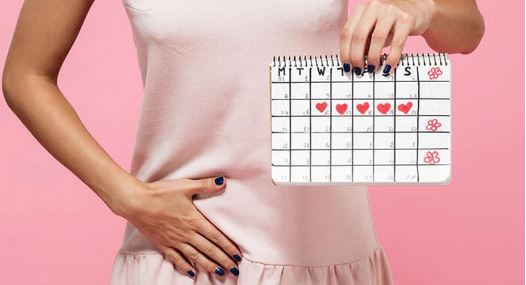Lifestyle
5 signs your period is coming
Many people experience a range of physical and emotional symptoms, known as premenstrual syndrome (PMS), as their hormone levels drop.
Here’s how to tell when a period is coming:
1. Your breasts feel tender
It’s common for breasts to feel extra sensitive, or even sore, on the days leading up to a period. “Breasts can feel sore and swollen due to the fluctuating levels of hormones.
It’s important to get to know how your breasts normally look and feel. Ideally, examine them in the days after your period ends, when your breasts are least likely to be swollen and tender. Bear in mind that breast tenderness before your period is normal, but if you have other concerns about your breasts or notice a change, you should see a healthcare professional.
2. Your skin is breaking out
Ever noticed how your skin is most breakout prone on the days you’re due? It may be because your period is near.
Researchers say that more than 50% of women say their acne symptoms get worse in the week before their period.
The rise in progesterone before a period can contribute to skin breakouts because it increases your skin’s production of sebum (oil) production.
3. You feel bloated
Bloating is a completely normal, and admittedly uncomfortable, period symptom. “Bloating is triggered by fluctuating hormones — for instance, high levels of progesterone can slow the digestive tract, leading to constipation and bloating.
If your bloating symptoms persist even after your period has come and gone, it’s important to speak to a healthcare professional so they can rule out anything serious.
4. Mood swings
If you notice your emotions are more intense than normal, this could also be a sign that your period is coming soon.
Emotional symptoms are thought to be connected to the rise and fall of hormones — particularly the dip in estrogen, which can make us feel low and irritable.
5. You have menstrual cramps
Menstrual cramps are a pretty good indicator. “Period-related stomach cramps are most likely caused by prostaglandins, hormone-like substances that tell your uterine muscles to contract (resulting in the shedding of the uterus lining) during your period.
Don’t always dismiss cramping as something that’s just part and parcel of having a period. If you’re experiencing pain that stops you from going about your day, speak to a healthcare professional.











